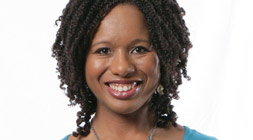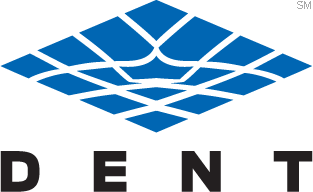Nela Richardson on the Role of a Chief Economist
 On March 24 2015, Redfin's Chief Economist Nela Richardson will be joining us onstage in Sun Valley for a session titled "The Anatomy of Disruption". (Request an invitation here.) In anticipation of her appearance, we interviewed her recently about what exactly a "chief economist" does.
On March 24 2015, Redfin's Chief Economist Nela Richardson will be joining us onstage in Sun Valley for a session titled "The Anatomy of Disruption". (Request an invitation here.) In anticipation of her appearance, we interviewed her recently about what exactly a "chief economist" does.
For tech firms, the title of “chief economist” is a fairly new thing. Can you tell us why more and more companies are deciding this is an important position to add?
The “chief economist” position has been around a long time at government agencies and in banking. I started my career as a newly minted Ph.D. in the Chief Economist office at mortgage insurer Freddie Mac and also worked in the Chief Economist office at the Commodity Futures Trading Commission, a financial derivatives regulator for the U.S. government. What’s new is the addition of chief economist title to the org charts of technology companies and other consumer-facing organizations.I think the addition of chief economist positions in the tech field is driven by two seismic and concurrent shifts in the information landscape. One is the enormous increase in data availability and the second is the emergence of new media as a consumer-friendly data repository.Chief economists, and the research teams they lead, are used to make sense of and add value to the tremendous amount of data that is in the universe – including macro economics, demographics, social trends and proprietary company data. In addition, consumer-facing companies, like Redfin, are now using media to be much more responsive to and interactive with their clients and customers than in the past.Data without analysis is like putting nails on the wall without hanging pictures. You know where the pictures go, but you have no idea what they look like. Chief economists help organize and analyze the vast amount of data in the universe and turn data into pictures that represent how the company’s brand interacts with the real world. That skill that economists bring to an organization is valuable for both consumers and executive decision makers.
"Data without analysis is like putting nails on the wall without hanging pictures."
What are the key business aspects that chief economist seems to enhance/augment? We see marketing (largely via content generation), strategy, product management (largely pricing), and data science as being key, what else comes to mind?
To the ones you list I’d add risk management, revenue forecasting, investment analysis, strategy – any area where a company can apply data, models and the classic economist charm.Of those things listed above, how does your work at Redfin align? What are the specifics of your role there?I lead housing and real estate research center at Redfin. The placement of the research center within the Redfin Communications group is illustrative of our team’s priority to educate and inform homebuyers and sellers, media and other thought leaders and housing market participants.When it comes to real estate, there is one essential question that everyone wants to know: “Who’s buying?”Our team analyzes that question from every angle. We look at company brokerage activity to evaluate buyer demand and seller supply. We use models to assess which types of homes are selling the fastest, and in what neighborhoods. We examine demographic trends to get a sense of the type of buyer that is dominating an area – investor, first time or move up. We also distill the role of economic factors – labor markets, interest rates, oil prices, global instability, etc – on real estate, one of the most common and most expensive asset classes.At the same time, we serve in a unique role in the company as a clearinghouse for all types of data – demographics, market, macroeconomic and company proprietary data. Under that lens the research team provides a valuable internal function as well.But it’s not all serious stuff either. Redfin is not only an authority on the housing market, it’s also a lifestyle brand. We use data to engage readers through interesting and compelling analysis that is on the cutting edge of social trends. It’s a fun job.
Have you read the Robert Litan book? If so, what practical lessons does it offer and what would you add to his analysis? Are there other books you’d recommend?
I worked for Bob Litan when he was Research Director at Bloomberg Government and during much of the time when he was writing the book. Bob focuses on several applications of economics in the real world. In this way Bob shows how economics helps set up markets that change incentives and thusly lead to preferred outcomes. I think what’s important to remember, whether you’re talking about auctions or game theory, applied econometrics or anything else – is that at its core economics as a discipline is a collection of tools strung together by a few key fundamental concepts. It’s the role of the economist to figure out what to build with those tools based on the universe of materials (aka data) provided.Also, along those lines it’s worth noting that predictions and forecasts are not the most valuable thing that economists do, but usually it’s the most reported thing.
"The most important economic tenet in my opinion by far is thinking on the margins"
Get a room full of economists together — do you think they’d likely agree(?) that many/most people, and (that includes managers and business owners) don’t tend to:
- think on the margin
- model processes with declining marginal returns
- properly weight incentives
- understand the nuances of supply and demand curve shifts and the causes thereof
- understand the implications of public choice theory
What is missing from that list (or should be removed) and how would you weigh them in terms of importance?
Economics provides a very powerful toolbox that all economists are trained to use. The beauty of economics is not that these tools lead to the same answer (though I’m sure many wish that were the case) but that they provide a method of evaluating different answers using the same set of criteria. As economists, we are all speaking the same language even if we are telling different stories. The tools you mention above are standard to the point of being reflexive for most is not all economists. Deviations of these economic conventions in public discourse must be clearly and rigorously justified, defended and of course modeled.The most important economic tenet in my opinion by far is thinking on the margins – it’s a key part of rational decision making for individuals, companies and other organizations. In a world of scarce resources, economics posits that an evaluation of marginal benefit is how rational decisionmaking occurs. What is the value of spending one more dollar, hiring one more worker or producing one more product? And does that benefit outweigh the costs? This is what distinguishes economics from almost any other profession. For economists, the value or disutility of any policy, model, investment strategy, etc., is evaluated by the incremental difference it makes to the company’s bottom line.
